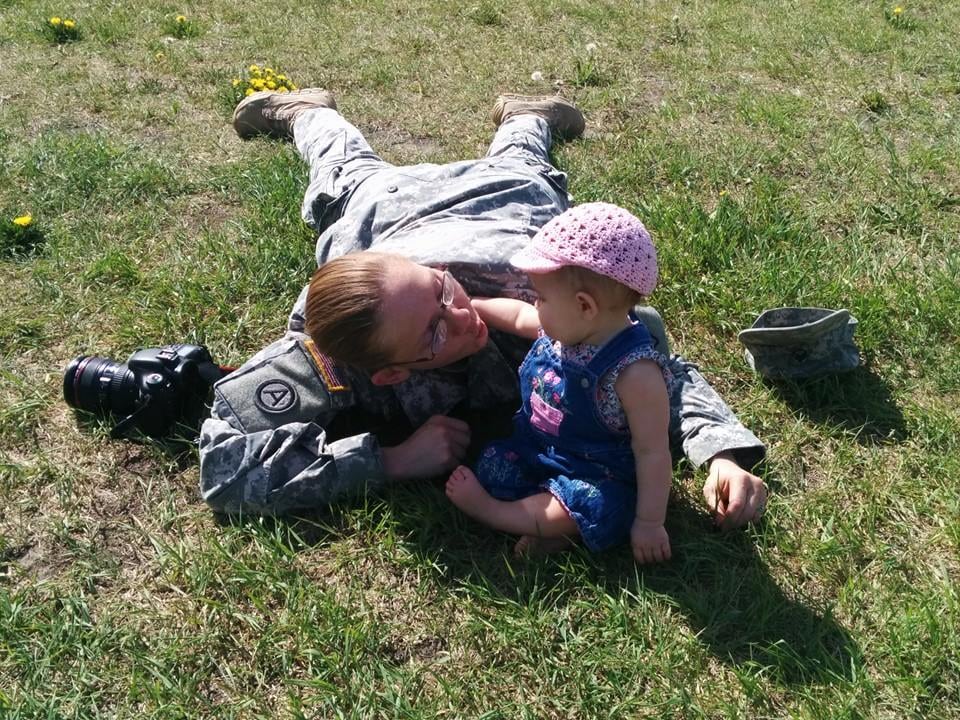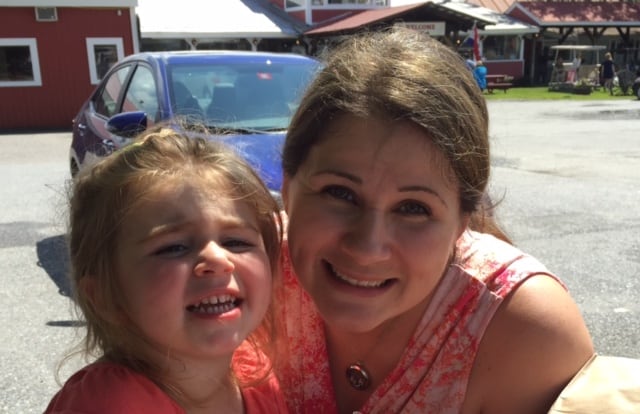Staff Sgt. Jessica Cotton found herself staring at a career crossroads: She wanted to throw herself, heart and soul, into law school, but she knew the long workdays of a noncommissioned officer wouldn't allow it.
"I was vocal with my command about what my next step was going to be," she said, "because I was thinking about getting out."
The 25-year-old had a hard choice to make, until fate and a pilot sabbatical program stepped in.
"It was kind of a rumor: 'They're letting people out of the Army for three years,' " Cotton remembered hearing. "And I was like, 'Really?' "
When she got the particulars on the Career Intermission Pilot Program, Cotton fired off her application. Now, the onetime drill sergeant is in Alabama, preparing for her first semester of law school ... and for a three-year break from service.

Staff Sgt. Jessica Cotton, recently a drill sergeant, graduated from Missouri's Columbia College while on active duty but wants to use her career intermission to focus on law school.
Photo Credit: Courtesy Staff Sgt. Jessica Cotton
Cotton and three other CIPP participants agreed to share their stories with Army Times; the two others did not respond to interview requests via Army Human Resources Command. Whether it's time for school, travel, family or a combination of the three, the participants praised the program for the relief it offers from the Army grind, but cautioned fellow soldiers to have a concrete plan in place before charting a new course out of uniform.
To Cambodia, for example.

Travel was an important part of career-intermission plans for Maj. Steve Hemmann, who scheduled trips to Southeast Asia and South America.
Photo Credit: Courtesy of Maj. Steve Hemmann
Leave the Army (temporarily), see the world
"I've been putting away money specifically in a 'sabbatical fund,' I guess you could say, for a while," said Maj. Steve Hemmann, who is taking at least three years off from his time as a special operator and checked in June 29 from Southeast Asia.
Hemmann said he plans to travel the world to assist his language skills — he's proficient in Mandarin Chinese and is hoping to pick up Spanish while visiting South America. The 34-year-old, who has deployed to both Iraq and Afghanistan, also aims to pick up some combatives lessons during his travels (muay thai on the current trip, for instance), and has plenty of plans for his time back home: Taking up golf and helping his parents, in their mid-70s, move into a smaller house.
He bought a home out of foreclosure near his folks in St. Louis. He's planning to fix that up and fulfill the rest of his to-do list, without full-time employment during his time off.
"I had an exact dollar figure set aside," he said. "I know the bill that I'm going to cough up."
Other soldiers would need a similar budget strategy and saving technique to maximize their time out of uniform, Hemmann said, but it very well could be worth the investment.
"The Army is a lifestyle as well as a career," he said. "It's 24/7/365. You seldom work an eight-hour workday. If you have other interests, other things you want to do ... it's just really challenging to work those into a career that demands so much time."

Staff Sgt. Mylinda DuRousseau said child care concerns for daughter Adalan were part of the reason she decided to apply for a three-year career intermission.
Photo Credit: Courtesy of Staff Sgt. Mylinda DuRousseau
Making family life fit
The Army's demands began to wear on Staff Sgt. Mylinda DuRousseau and her husband, 1st Sgt. Philip DuRousseau, last year. During one stretch, both soldiers found themselves away from home for the same four months, leaving behind a daughter who turns 2 years old this October.
"This year wasn't going to slow down any," said DuRousseau, who was stationed in Alaska with her husband, where family support, when available, came with an expensive round-trip plane tickets. "We were discussing a family-care plan. I didn't want to just walk away."
The Army's message on CIPP caught her husband's attention; she applied before yet more time away from home, this time heading to India, and was approved.
DuRousseau said her command supported her decision despite staffing shortages, and while other soldiers doubted she'd be eager to return after time off at home, she saw the chance for an intermission differently.
"Some have said they don't think I will want to return after being gone for three years, but I feel I will be re-energized and it will give me a fresh viewpoint," she said. "[It] will help me see new things that can be implemented to improve our great organization. Many people tend to become complacent over time, and this break will help break that."

Maj. Elizabeth Eaton-Ferenzi, here with her oldest daughter, Annalise, plans to take time off to spend with her young family and line up her Army career with that of her husband, also a major.
Photo Credit: Courtesy Maj. Elizabeth Eaton-Ferenzi
Maj. Elizabeth Eaton-Ferenzi and her husband, Maj. Steve Ferenzi, also deal with a dual-military workload, but their present situation — both stationed at the U.S. Military Academy — wasn't as vexing as their future one.
Both majors had earned resident slots for Intermediate Level Education courses, Eaton-Ferenzi said, but not at the same time, meaning the family, with two girls under 3 years old, would have to split up.
CIPP offered a solution: Eaton-Ferenzi would take about 21 months off to line her schedule up with her husband's and raise her family. The pair learned about the program from a 2014 Army Times cover story and overcame a few logistical hurdles to sign up.
"Outprocessing was a little challenging at times because of the unfamiliarity of the program Army-wide," Eaton-Ferenzi said in an email. "I would walk around with copies of the MILPER message and share parts of the program with specific offices that had to do things differently to accommodate it for the first time. I guess because we are the first group through this program, we are the guinea pigs. Luckily, everything has worked out so far."
There's also the matter of keeping in touch: As a trained helicopter pilot already taken out of the skies for duties at West Point, Eaton-Ferenzi said she'll work to keep current as best she can while on intermission.
"I'm going to be out of the cockpit for seven years," she said. "That has raised some real concerns for me."
Kevin Lilley is the features editor of Military Times.





